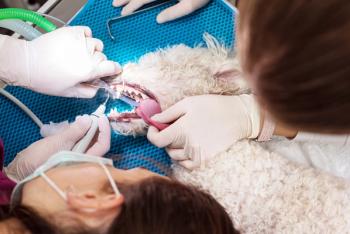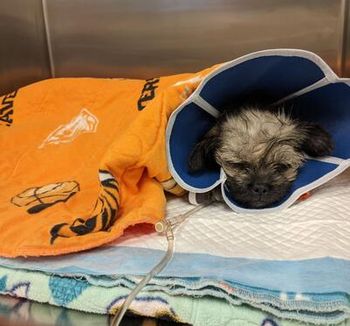Even after many years in practice, the dog with immune-mediated hemolytic anemia (IMHA) can still leave us baffled. Should we refer to a specialist, transfer to emergency, or send the dog home on medication? When should we recheck—tomorrow, in a week, in a month? What drugs do we pick? Or should we just run screaming from the building?
IMHA cases usually start out in the emergency room, but sometimes they are caught early during routine bloodwork or the patient presents in general practice with mild early disease. A better understanding of how to manage these cases will help with early diagnosis, catching relapses and even managing them on our own. You don’t need to become an expert to get the ball rolling on a good diagnostic and treatment plan. At a recent Fetch dvm360 conference, Elisa Mazzaferro, MS, DVM, PhD, DACVECC, shared her approach to IMHA cases.
This is the first of two articles on this topic. Here, we discuss the causes and diagnosis of IMHA. The second article will shed light on best practices for short- and long-term therapy as well as monitoring IMHA patients.
Disease background
IMHA is a disease in which the body attacks its own red blood cells (RBCs). It is among the most common immune-mediated diseases that we see in dogs.1 IMHA has a 30% to 70% mortality rate despite aggressive therapy, Dr. Mazzaferro noted, and relapse rates range from 11% to 15%.2,3 Upon initial diagnosis, Dr. Mazzaferro said she tells her clients that their hemolyzing pet has roughly a 40% to 50% chance for long-term survival, then she customizes this prognosis based on follow-up diagnostics and response to treatment. Many patients do not make it through the initial hemolytic crisis, but those that do can die later as a result of a thromboembolic disease, renal failure, liver failure, relapse or complications of medical therapy. Dogs with concurrent immune-mediated thrombocytopenia, hypoalbuminemia or very rapid hemolysis can have a significantly worse prognosis.
The median age at presentation is 6 years. Although most cases of IMHA occur in female dogs, males statistically have a worse prognosis. Cocker spaniels, sheepdogs and poodles, among others, are particularly susceptible. IMHA in susceptible breeds is usually far more severe and requires more rapid, aggressive treatment than that in non-predisposed breeds. Pit bull terriers are predisposed to Babesia and have secondary IMHA from this.
Intravascular hemolysis is less common than extravascular hemolysis. The difference between the two—besides the site of RBC destruction—is that with intravascular hemolysis you must be sure to rule out zinc toxicity (and some of the infectious diseases), and you should expect the clinical progression to be more severe, with a higher risk for disseminated intravascular coagulation (DIC). You still treat these patients the same way, but be prepared to be more aggressive, and don’t forget to address the thromboembolic and coagulopathy risks using medication and coagulation testing.
Seventy percent to 80% of canine IMHA cases are idiopathic,4 known as primary IMHA. Secondary IMHA is caused by an immunoglobulin (Ig) M or IgG antibody attack against RBCs in response to infection, neoplasia, an inflammatory condition, drug or toxin, and maybe vaccination. Some toxicities cause direct RBC damage, which can be mistaken for IMHA but is not immune mediated.
Following are potential underlying causes of secondary IMHA:
- Infection: Babesia, Anaplasma, Mycoplasma spp, Ehrlichia
- Drugs: Nonsteroidal anti-inflammatory drugs, sulfonamides, cephalosporins
- Vaccinations: There is still not substantial evidence that vaccines can cause IMHA, but we suspect that they might, Dr. Mazzaferro said. There is a 2% to 26% incidence of vaccine-implicated IMHA depending on which study you look at,5 she pointed out. It is also not at all clear what the duration from vaccination to onset of IMHA is supposed to be.
- Neoplasia: Any malignancy is potentially causal, either directly or indirectly. In patients that are significantly hypoproteinemic, be sure to rule out erythrophagocytic histiocytic sarcoma, Dr. Mazzaferro said.
- Toxins: Zinc, onions and large amounts of garlic (although these toxicities are not truly immune mediated, they cause Heinz body anemia)
- Other infections or inflammatory conditions in the body that can overstimulate the immune system (i.e. cholecystitis, pyelonephritis, pancreatitis)






